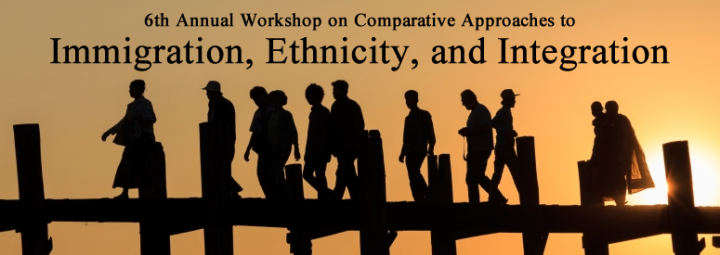PARTICIPANTS
 Bernd Beber is an Assistant Professor in New York University’s Wilf Family Department of Politics. His research focuses on issues related to international peace and security, and he is particularly interested in the effects of third-party interventions in armed conflicts. His work combines theories of strategic choice, methods for causal inference, statistical analysis, and survey methods. He has studied the causes and consequences of international mediation in military conflicts, has been a co-investigator for a panel survey that tracked respondents across Sudan and South Sudan around the time of Sudan’s partition, and has co-led a survey in Liberia that investigated the micro-level effects of the country’s ongoing UN peacekeeping mission. He has also written on the economics of rebel recruitment and on how to detect election fraud in data-poor environments.
Bernd Beber is an Assistant Professor in New York University’s Wilf Family Department of Politics. His research focuses on issues related to international peace and security, and he is particularly interested in the effects of third-party interventions in armed conflicts. His work combines theories of strategic choice, methods for causal inference, statistical analysis, and survey methods. He has studied the causes and consequences of international mediation in military conflicts, has been a co-investigator for a panel survey that tracked respondents across Sudan and South Sudan around the time of Sudan’s partition, and has co-led a survey in Liberia that investigated the micro-level effects of the country’s ongoing UN peacekeeping mission. He has also written on the economics of rebel recruitment and on how to detect election fraud in data-poor environments.

Albert Fang (Ph.D., Columbia University, 2015) is a Postdoctoral Associate at the Institution for Social and Policy Studies and the Center for the Study of American Politics. His areas of specialization are in political representation, intergroup relations and identity politics, political behavior, and political psychology. He is also interested in methodology with a focus on causal inference, experiments, and applied econometrics.
Jeremy Ferwerda is a Postdoctoral Fellow at the Watson Institute for International and Public Affairs at Brown University. Starting in July 2016, he will be an Assistant Professor of Government at Dartmouth College. His current research addresses issues of decentralization and immigration, with a regional focus on Europe. In his dissertation and book project, he investigates the consequences of devolving control over redistributive policy to local governments. Other work appears in the American Political Science Review and Electoral Studies. He received my PhD in Political Science from MIT in September 2015. Before graduate school, he attended Cornell University and worked at the hedge fund D.E. Shaw & Co.
 |
|
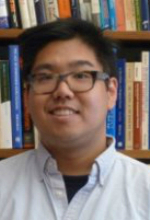 |
|
 |
|
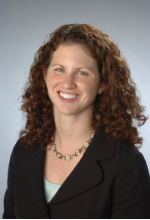 |
Shana Gadarian received a Ph.D. in politics from Princeton University in 2008 and a BA in political science from Rutgers University. Prior to her appointment at the Maxwell School, she was a Robert Wood Johnson Scholar in Health Policy Research at the University of California-Berkeley. Her primary research interests are in American politics, political psychology, political communication, and experimental methods. The interest that motivates her research is how the tone and content of the political media environment influences how Americans seek political information and form opinions. In particular, she is interested in how citizens learn and form attitudes when politics is threatening, whether threats come from terrorism, public health outbreaks, or media and elite rhetoric. Her book with Bethany Albertson, University of Texas, Anxious Politics: Democratic Citizenship in a Threatening World, published from Cambridge University Press, explores how anxiety over policy issues like immigration, public health, terrorism, and climate change affect how Americans seek political information, their trust in government, and public opinion. In a new project, she is working with a cross-national group of scholars from Norway, Finland, and Spain exploring the effects of terrorism on social capital, societal resilience, and public opinion across four countries. The project is funded by the Norwegian Research Council. |
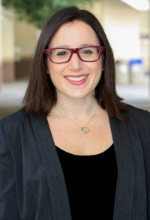 |
Sara Wallace Goodman is an Associate Professor of Political Science at the University of California, Irvine, where she is also an affiliate of the Centers for Research on International Migration (CRIM) and for the Study of Democracy (CSD). Her research examines democratic inclusion and the shaping of political identity through citizenship, immigrant integration, and education policy. Her book, Immigration and Membership Politics in Western Europe (Cambridge University Press, 2014) explains how the dynamic interplay between party politics and the institutional inheritance of citizenship policy contributes to new, contemporary definitions of national belonging through mandatory civic integration schemes. Her research has also been published in Comparative Political Studies, World Politics, West European Politics, Political Studies, and Journal of Ethnic and Migration Studies. Immigration and Membership Politics was awarded the Best Book Award by the European Politics and Society Section of the American Political Science Association (APSA) and Honorable Mention for the Best Book Award by the Migration and Citizenship Section of the APSA. Her articles on related topics have also been recognized by APSA’s Sections of European Politics and Society (Best Paper Prize) and Migration and Citizenship (Honorable Mention). Dr. Goodman was a 2013-2014 Hellman Faculty Fellow, a recipient of the UCI School of Social Sciences Assistant Professor Research Award, as well as an Israel Institute Faculty Mid-Career Development Grant. |
 |
Dominik Hangartner is an Associate Professor in the Department of Methodology at the London School of Economics and Political Science and the Principal Investigator of the Migration Policy Lab at the University of Zurich. He is also an affiliate member of the Department of Government at the London School of Economics and Political Science. After pre-doctoral fellowships at Harvard University, Washington University in Saint Louis, and the University of California, Berkeley, he received his Ph.D. in Social Science from the University of Bern in 2011. He uses field work and statistics to study the effects of migration policies and political institutions. |
 |
Marc Helbling is full professor in political sociology at the Department of Political Science at the University of Bamberg and head of the Emmy-Noether research group ‘Immigration Policies in Comparison’ (IMPIC) at the WZB Berlin Social Science Center. In 2012 he was a visiting lecturer at the Woodrow Wilson School at Princeton University. He was a visiting scholar at the Centre for European Studies at Harvard University in 2011 and at the Centre for European Studies at New York University in 2005/2006. He spent shorter research stays at the European University Institute in Florence, at Oxford University, the University of Sydney (2014) and at McGill University (2008). He was an elected member of The Young Academy at the Berlin-Brandenburg Academy of Sciences and Humanities and the National Academy of Sciences Leopoldina (2010-2015) and received the 2011 Young Scholar Research Award from the Mayor of Berlin. His research fields include immigration and citizenship policies, nationalism, xenophobia/islamophobia, the accommodation of Islam and right-wing populism. He studied political science at the University of Lausanne (1998-2002) and at the Institut d’Etudes Politiques in Paris (2000/01). He holds a PhD in political science from the University of Zurich (2007). |
 |
Dan Hopkins is a political scientist whose research centers on American politics, with a special emphasis on racial and ethnic politics, local politics, political behavior, and research methods. He is currently an Associate Professor in the Political Science Department at the University of Pennsylvania, with a secondary appointment at the Annenberg School for Communication. |
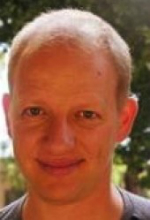 |
Yotam Margalit (Ph.D. Stanford University, 2009) specializes in the fields of international and comparative political economy. Much of his work deals with the political consequences of globalization, examining how its economic and cultural effects influence electoral politics and shape mass preferences on issues such as welfare spending, trade, and immigration. Other recent work examines why some developing countries are much more successful than others in attracting foreign direct investment. This project builds on a large experimental cross-national study of firms that he devised and is currently heading in collaboration with the United Nations Industrial Development Organization and the World Bank. Professor Margalit’s research has appeared in publications such as the American Political Science Review, American Journal of Political Science, and the Journal of Politics. The research has been funded by fellowships and awards from the Mellon Foundation, the Sawyer Foundation, the Program of Global Justice at Stanford University, the Israel Science Foundation, The Institute for Social and Economic Research (ISERP), the Freeman Spogli Institute for International Affairs, and the Center for International Business Education and Research (CIBER) at Columbia University. Prior to his academic career, he worked in management consulting in London, UK, and was an executive of an international enterprise software firm in San Francisco, CA. He graduated with honors from the Hebrew University of Jerusalem, receiving his B.A. in Economics and History. |
 |
Margaret Peters is an Assistant Professor in the Department of Political Science at Yale University. Prior to coming to Yale, she was an Assistant Professor and Thrice Family Scholar at the University of Wisconsin-Madison. Her research focuses broadly on international political economy with a special focus on the politics of migration. She earned her Ph.D. from Stanford University in 2011. Her dissertation on the relationship between trade and capital policy and immigration policy won the American Political Science Association’s Helen Dwight Reid award for the best dissertation on international relations, law and politics. Her work has appeared in International Organization. She teaches classes on international political economy and migration. |
